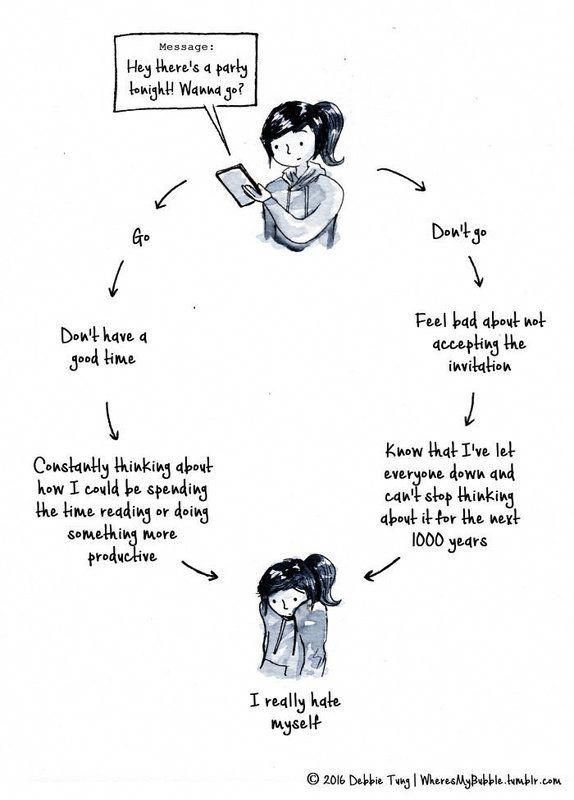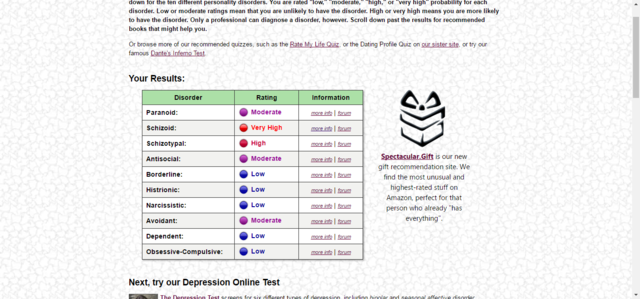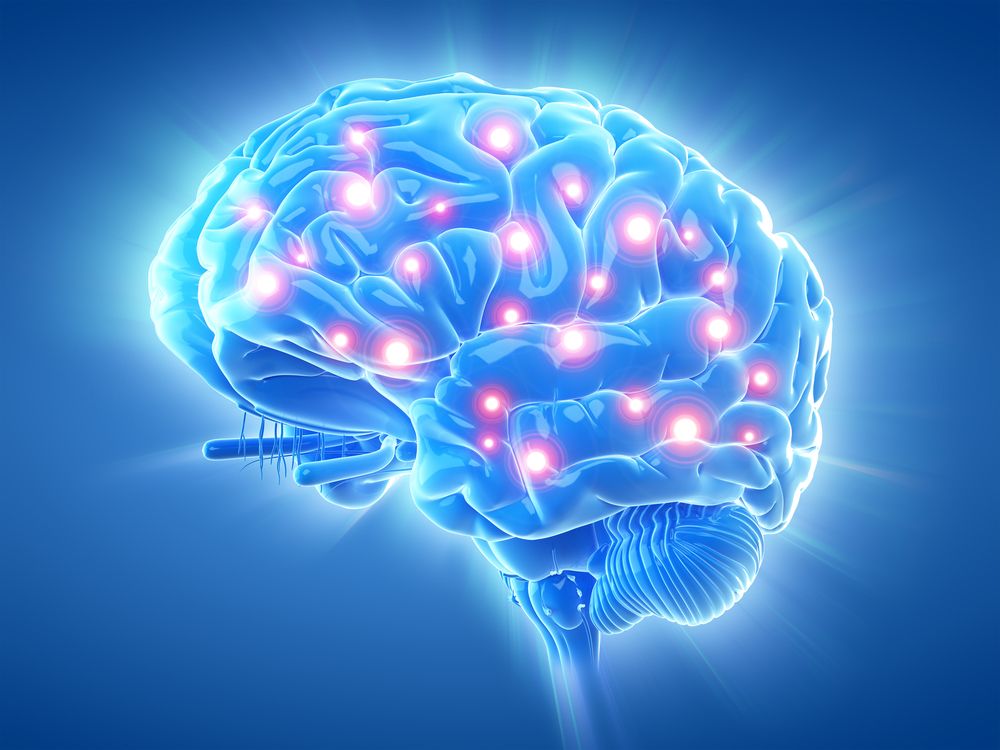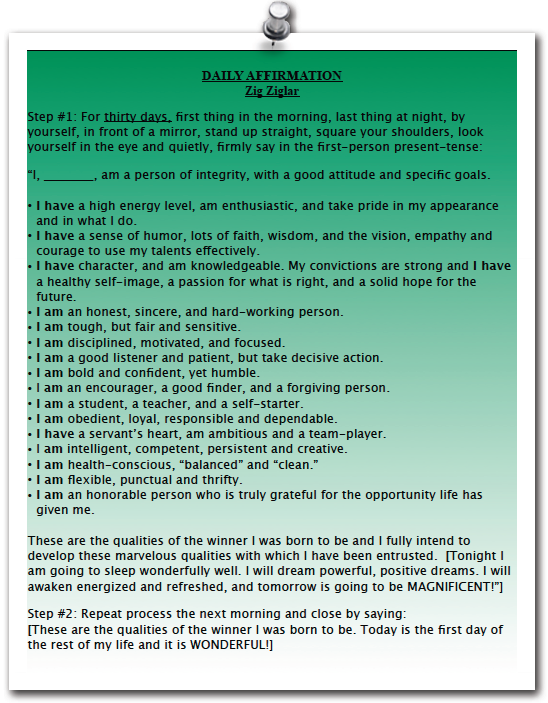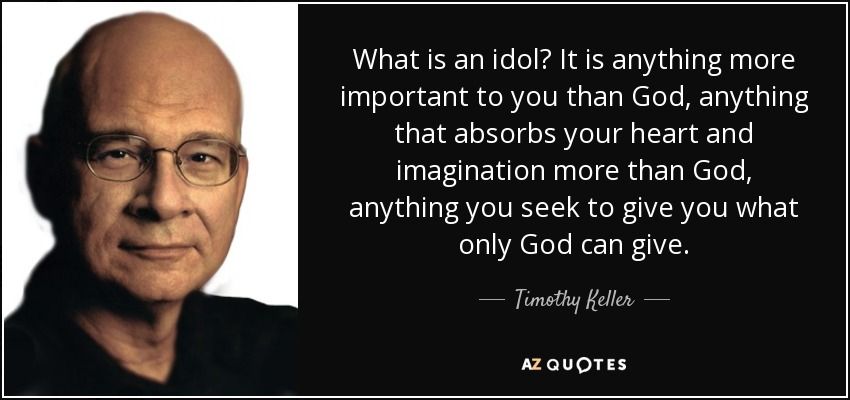Toxic parental relationship
How To Identify Them And What To Do If It’s Your Family
What are toxic parents | Signs | Effects | How to deal with your toxic parents
You can always divorce an abusive spouse. You can split up with a mistreating partner. But what if your parents are the ones who are making you suffer?
It is true that even the best parents fall short from time to time. While there is no perfect parent, most are good enough. However, a few are downright toxic.
What Are Toxic Parents?
Toxic parents create a negative and toxic home environment. They use fear, guilt, and humiliation as tools to get what they want and ensure compliance from their children. They are often neglectful, emotionally unavailable, and abusive in some cases. They put their own needs before the needs of their children. Children who grow up in such dysfunctional families experience toxic stress on a daily basis.
Many toxic parents will never admit that their parenting style is wrong, hurtful, or damaging. It is common for parents to cling to their parenting style, insisting that it is in the child’s best interest or that it is their normal style of parenting.
Abusive behaviors of toxic parents negatively affect their children in the short term as well as well into adulthood.
In psychology, the term used most often to describe toxic parents is narcissistic parents. In severe cases, these parents suffer from personality disorders such as narcissistic personality disorder1.
A toxic mother or father will often display a litany of toxic behavior, including: 2
Self-absorbed
Toxic parents tend to be self-centered, putting their own needs before their children’s. Such parents are self-absorbed, emotionally unavailable, and do not have empathy for others.
Rigid
They insist their opinions and values are right, and others opposing ones are wrong. These parents will force their children to adopt the same opinions and values.
Easily offended
Toxic parents tend to be very sensitive to criticism.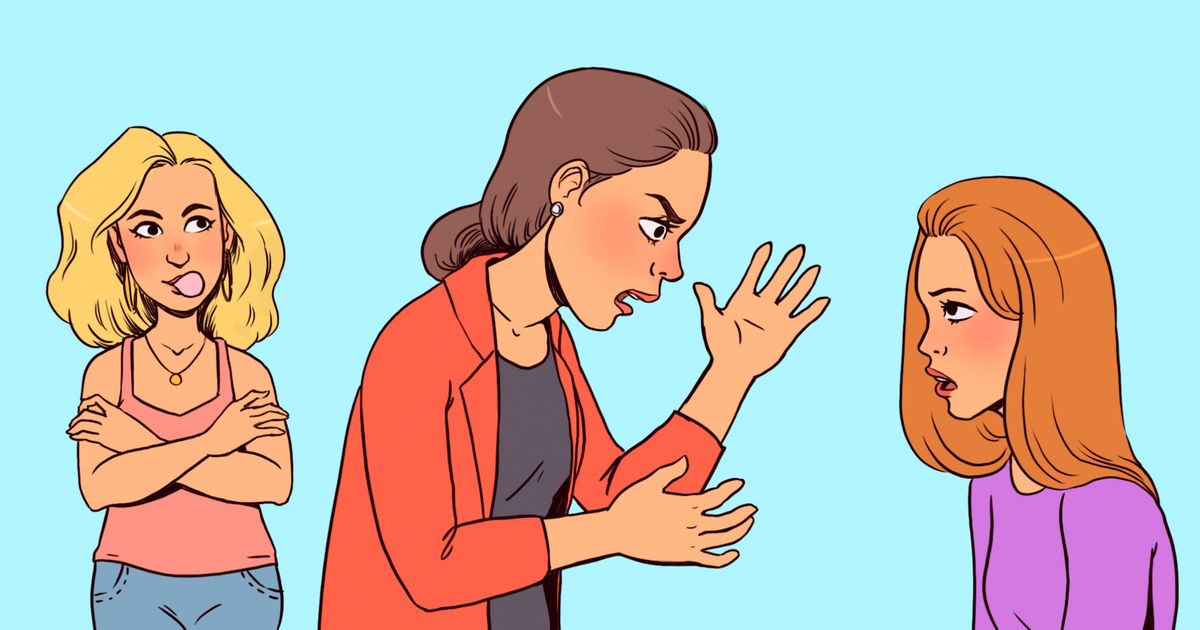 Whenever their opinions, values, or actions are challenged, their inability to control emotion leads to emotional outbursts and unpredictable, reactive behavior.
Whenever their opinions, values, or actions are challenged, their inability to control emotion leads to emotional outbursts and unpredictable, reactive behavior.
Emotional instability
Some toxic parents have explosive tempers and they are high in hostility. A toxic parent can be an unpredictable parent. At the slightest provocation, they become dramatic, hostile, aggressive, and cruel.
Manipulative
Parents who are toxic are manipulative. They may use guilt or silent treatment to control their children. They may also twist the truth to their advantage and play the victim to get what they want.
Abusive
Verbal abuse and emotional abuse are commonplace in toxic families. Yelling, screaming, and name-calling are their primary means of communication with their children.
Any form of assertiveness, individual differences, or rebellion is seen by toxic parents as a personal attack. They use physical pain to discipline and enforce abusive family rules.
Some abusive parents don’t stop there. The children can also suffer from physical abuse and sexual abuse.
Extremely Controlling
Toxic parents thrive on control. Their parenting style is often authoritarian. They tend to use fear to ensure compliance.
The unreasonable demands of parents can follow these kids into adult lives.
Additionally, some control their child in order to live vicariously through them.
Blaming Everyone Else
Toxic parents never take responsibility for their actions and are usually in complete denial. They blame everyone around them for the turmoil, tension, and hostility within the household.
Effects Of Toxic Parenting On Children
Toxic parent-child relationships can have an immense impact on children’s healthy development. Children and adult children of abusive parents may experience the following challenges.
Mental health
Prolonged childhood stress and adverse childhood experiences (ACEs) can adversely affect children’s brain development and harm their physical and mental health3.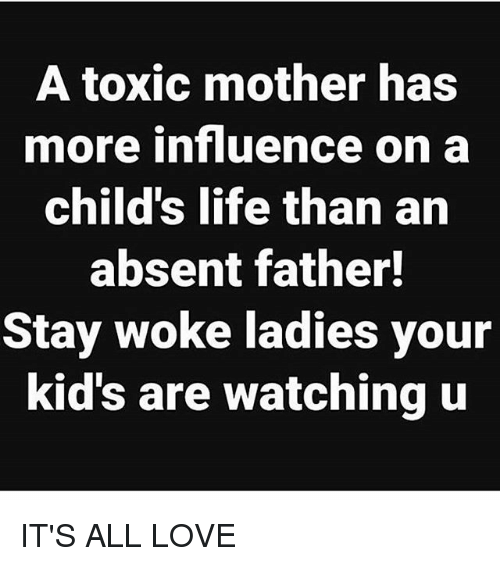
Children of narcissistic parents often have higher incidences of depression4. Lacking emotional regulation skills is also a common issue for these children5. It is more likely they will suffer from PTSD later in life6.
Physical health
In addition to the psychological effects of toxic environments in the home, children who live in a home where abuse and neglect are prevalent tend to have compromised immune systems.
Our biological systems are profoundly affected by the environments in our early years. Children living in toxic environments are more likely to develop asthma, hypertension, obesity, diabetes, and cardiovascular disease.
Outcomes
Children from abusive dysfunctional families tend to have lower self-esteem. They are also linked strongly to behavioral issues. Adolescents are at risk for antisocial behavior and drug use7.
Because they didn’t form a secure attachment with their parents, adult children may have a difficult time forming intimate relationships or maintaining healthy relationships with others8.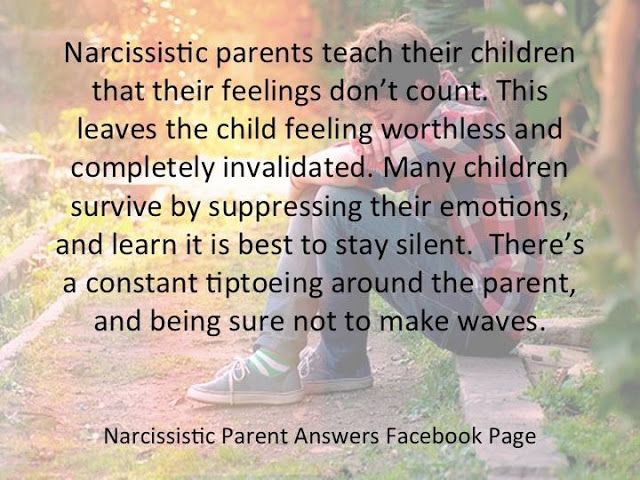
How To Deal With Your Toxic Parents
If you are a child with toxic parents, seek help from teachers and school counselors as soon as possible. You will need help and guidance to deal with the toxic behavior of parents.
If you are an adult child, your journey to adulthood has been tough, but you’ve made it. Now it’s time to help yourself heal.
Create a support network
The assumption that parents always love and protect their children is not universally true.
Unfortunately, or fortunately for them, most people don’t understand or believe this because they haven’t gone through it. “Blood is thicker than water,” describes the importance of loyalty and family ties to many with normal parents.
It hurts when the people who were supposed to love us hurt us. But it hurts even more when you tell a trusted friend about this painful past, only to hear them scold you for being an ungrateful child.
So, it is important that you create a support network of people who will listen to you and support you.
It can be an empathetic friend or an experienced psychologist. Surround yourself with people who will help you heal, rather than making you feel worse about yourself.
Set Boundaries And Stick To Them
Most abused children understand that they must set personal boundaries with their toxic parents. But this is easier said than done.
Bonding is hard-wired into us, especially to our caregivers, even if they do not treat us well. Despite being mistreated, many children still hope to gain their parents’ complete approval and acceptance.
We cannot change others (you’ve probably tried for a long time). Toxic people will probably never change unless they seek help for themselves. Focus on what you can control and manage your own expectations and reactions, rather than hoping for change.
At some point, you’ll need to take care of your own psychological wellbeing if the painful relationship patterns don’t seem to improve.
Cutting off contact and forgoing the toxic relationship because your parents cannot follow healthy boundaries may seem like a drastic measure, but your mental health and emotional health are more important. You need to protect yourself from harm.
You need to protect yourself from harm.
Seek mental help
Children who suffer from anxiety, depression, PTSD, or other psychological issues need to seek help from mental health professionals.
Psychiatrists and psychologists are not only able to treat mental disorders, but can also provide strong support for those coping with issues resulting from childhood trauma such as:
- You have a constant feeling of being trapped in the pain of childhood.
- You are suffering because of your anger towards your parents.
- You are afraid people will not like you, so you work hard to please them you seek constant approval9
- Your insecure attachment leads to difficulty in relationships.
- You have been involved in intimate partner abuse and domestic violence.
You can work through these issues with the help of an experienced therapist and rebuild the happy life you deserve.
Also See: Toxic Things Parents Say
Final thoughts on toxic parents
Fortunately, the damage caused by toxic parents is not written in stone.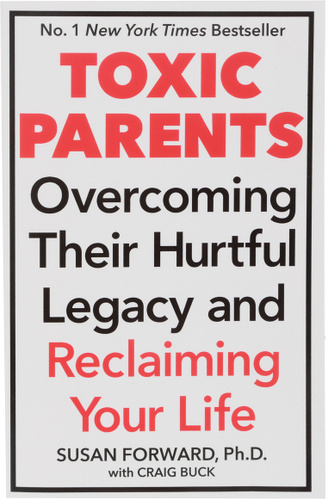 Neuroplasticity allows us to rewire our brains for happiness with new experiences. The importance of having healthy adult relationships and a support network cannot be overstated.
Neuroplasticity allows us to rewire our brains for happiness with new experiences. The importance of having healthy adult relationships and a support network cannot be overstated.
References
-
1.
Dutton DG, Denny-Keys MK, Sells JR. Parental Personality Disorder and Its Effects on Children: A Review of Current Literature. Journal of Child Custody. Published online October 2011:268-283. doi:10.1080/15379418.2011.620928
-
2.
Brown NW. Children of the Self-Absorbed: A Grown-up’s Guide to Getting over Narcissistic Parents. New Harbinger Publications; 2008.
-
3.
Johnson SB, Riley AW, Granger DA, Riis J. The Science of Early Life Toxic Stress for Pediatric Practice and Advocacy. Pediatrics. Published online February 1, 2013:319-327. doi:10.1542/peds.2012-0469
-
4.
Dentale F, Verrastro V, Petruccelli I, et al.
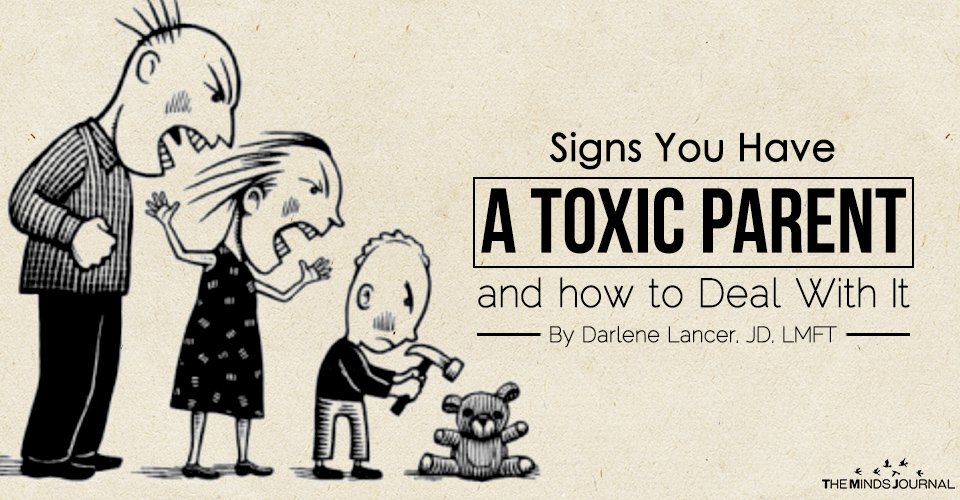 Relationship between parental narcissism and children’s mental vulnerability: Mediation role of rearing style. International Journal of Psychology & Psychological Therapy. 2015;15(3):337–347.
Relationship between parental narcissism and children’s mental vulnerability: Mediation role of rearing style. International Journal of Psychology & Psychological Therapy. 2015;15(3):337–347. -
5.
Murray DW, Rosanbalm KD, Christopoulos C, Hamoudi A. Self-Regulation and Toxic Stress: Foundations for Understanding Self-Regulation from an Applied Developmental Perspective. .; 2015.
-
6.
Margolin G, Vickerman KA. Posttraumatic stress in children and adolescents exposed to family violence: I. Overview and issues. Professional Psychology: Research and Practice. Published online December 2007:613-619. doi:10.1037/0735-7028.38.6.613
-
7.
Schilling EA, Aseltine RH Jr, Gore S. Adverse childhood experiences and mental health in young adults: a longitudinal survey. BMC Public Health. Published online March 7, 2007. doi:10.1186/1471-2458-7-30
-
8.
Miga EM, Hare A, Allen JP, Manning N.
 The relation of insecure attachment states of mind and romantic attachment styles to adolescent aggression in romantic relationships. Attachment & Human Development. Published online September 2010:463-481. doi:10.1080/14616734.2010.501971
The relation of insecure attachment states of mind and romantic attachment styles to adolescent aggression in romantic relationships. Attachment & Human Development. Published online September 2010:463-481. doi:10.1080/14616734.2010.501971 -
9.
Rappoport A. Co-narcissism: How we accommodate to narcissistic parents. The Therapist. 2005;1:1-8.
12 Signs You Have Toxic Parents & How to Deal With Them
Skip to contentPublished: December 14, 2021 Updated: September 21, 2022
Published: 12/14/2021 Updated: 09/21/2022
Toxic parents can be abusive, unsupportive, controlling, and harsh. Growing up with toxic parents can affect your physical and mental health, putting you at risk for substance use, low self-esteem, and relationship difficulties. Setting healthy boundaries, prioritizing self-care, and getting support from family, friends, or a therapist are ways to cope with a toxic childhood.
Dealing with the fallout of toxic parents can be challenging, but you don’t have to do it alone. BetterHelp has over 20,000 licensed therapists who provide convenient and affordable online therapy. BetterHelp starts at $60 per week. Complete a brief questionnaire and get matched with the right therapist for you.
BetterHelp has over 20,000 licensed therapists who provide convenient and affordable online therapy. BetterHelp starts at $60 per week. Complete a brief questionnaire and get matched with the right therapist for you.
Choosing Therapy partners with leading mental health companies and is compensated for referrals by BetterHelp
Visit BetterHelp
What Is a Toxic Parent?
Toxic relationships can affect romantic partners, friends, siblings, and even parents and their children. Toxic parent/child relationships develop when children experience significant stress at the hands of their parents, or when parents fail to protect their children from a stressful environment.1
These relationships may involve physical, emotional, or sexual abuse and parental substance use and mental health issues. Toxic parent/child relationships often begin in childhood and continue into adulthood. These relationships can have negative effects on children and impact their mental and physical health. 2
2
Anyone can be a toxic parent, including mothers, fathers, step-, adopted, and foster parents. Toxic parents may fail to provide one of the components of a healthy parent-child relationship, including love, warmth, nurturance, understanding, protection, appropriate modeling, teaching opportunities, and clear, firm boundaries and limits.3
Here are twelve signs of a toxic parent:
1. They’re Violent
Toxic parents may be physically abusive. They may resort to violent acts like hitting, kicking, or choking their children when angry. In turn, children often develop fear, anxiety, and anger about this treatment. Some parents believe that violence can be a way to “teach” children; however, this is false. Violence has severe emotional and physical consequences on children and negatively affects any relationship.
2. They’re Verbally & Emotionally Abusive
Abuse includes more than physical violence. Toxic parents may also be verbally and emotionally abusive.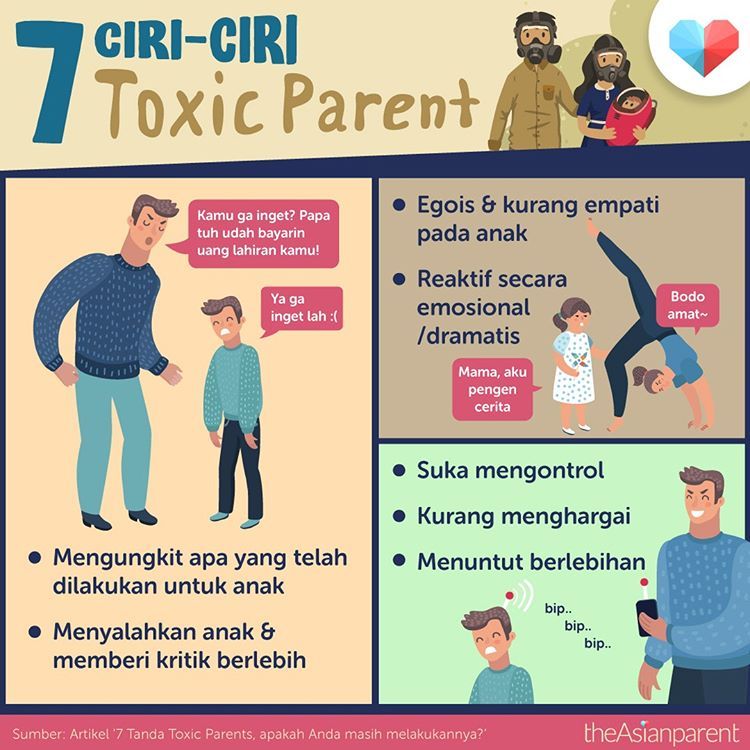 This could involve them belittling their children’s self-esteem by calling them names, humiliating them in public, and using emotional manipulation and gaslighting tactics to get what they want. Though there’s no physical evidence of this type of abuse, it can be just as harmful.
This could involve them belittling their children’s self-esteem by calling them names, humiliating them in public, and using emotional manipulation and gaslighting tactics to get what they want. Though there’s no physical evidence of this type of abuse, it can be just as harmful.
3. They’re Sexually Inappropriate
A serious and extremely harmful sign of a toxic parent is sexually inappropriateness with the child. This could involve sexual acts, molestation, or exposing their children to inappropriate sexual content, all of which are considered sexual abuse. These behaviors are extremely damaging and if discovered, parents could face legal consequences.
4. They Put Their Needs Before Their Children’s
Toxic parents often prioritize their own needs, desires, and wants before those of their children. They may take care of their basic necessities first and address their children’s last. This is a sign of narcissism among parents and is particularly harmful for infants and young children who are not capable of caring for themselves.
5. They’re Controlling
Controlling parents become overly involved in their children’s lives to the point that it limits the child’s freedom, independence, and individuality. Signs of a controlling parent include interfering and expecting children to fit the parent’s image of what they “should” be, rather than giving them the freedom to develop their own interests and goals.
6. They Expect Complete Obedience
Toxic parents may expect their children to be obedient at all times. Though teaching children to respect authority is a necessary part of parenting, it’s normal for children to question and push back on their parent’s authority. Healthy parents handle this by staying firm yet loving; toxic parents overreact when their authority is challenged and may resort to aggression.
7. They Use Harsh Forms of Punishment
Discipline is a healthy parenting tool when used correctly; however, toxic parents often resort to harsh forms of punishment that are more dangerous and severe than warranted.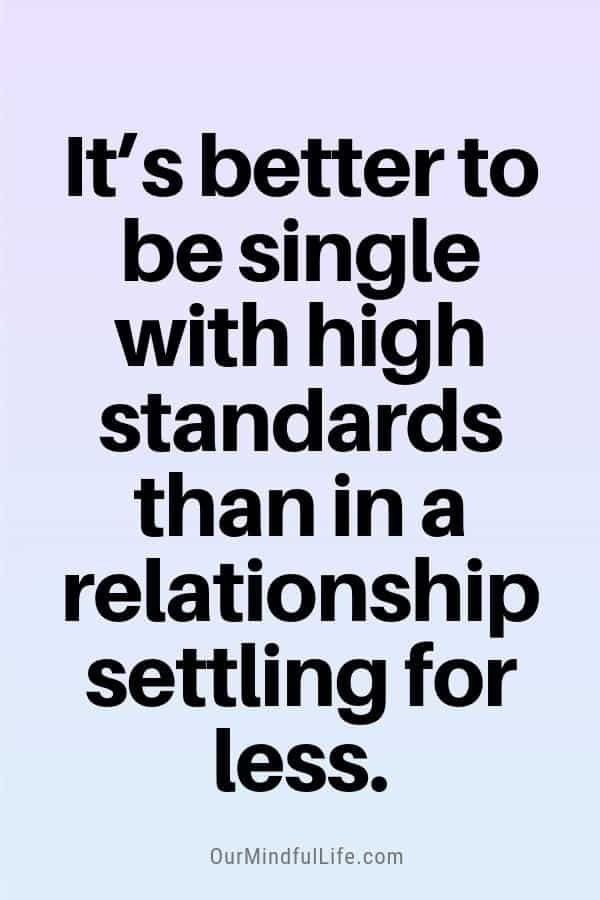 For example, a toxic parent may hit a child for not completing their chores. Harsh punishment might also be verbal and emotional (e.g., a parent who belittles a child who comes home with a bad grade).
For example, a toxic parent may hit a child for not completing their chores. Harsh punishment might also be verbal and emotional (e.g., a parent who belittles a child who comes home with a bad grade).
8. They Expect You to Admire Them
The need for excessive admiration is another sign of a narcissistic parent. These parents expect their children to praise and admire them and may become angry, resentful, and manipulative with attention-seeking behaviors if they fail to do so. These parents usually do not give their children the same admiration and praise in return.
9. They’re Jealous of Your Other Relationships
Your toxic parents may feel jealous when you develop close relationships with other people. They could perceive these other close relationships as threats. In some cases, they may resort to unhealthy tactics like manipulation to feel closer to you. In extreme cases, they could even try to end your relationships so they no longer feel threatened.
10.
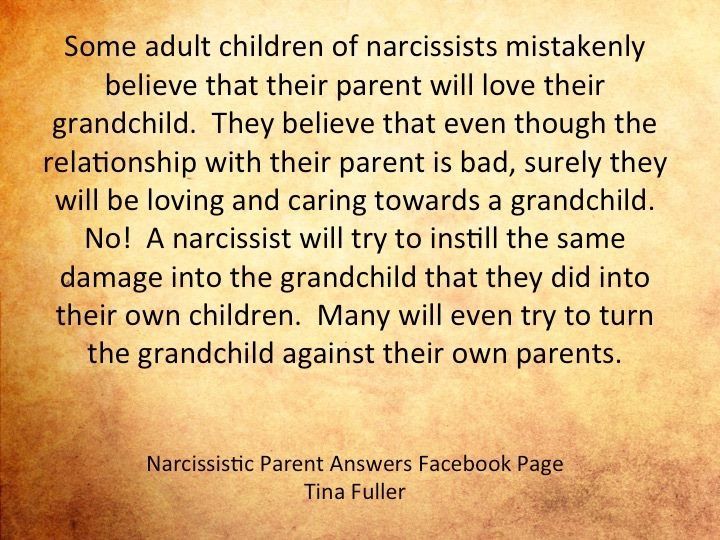 They’re Unsupportive
They’re UnsupportiveToxic parents tend to be unsupportive of their children’s choices, interests, and accomplishments. There may be many different reasons for this, including jealousy or a need to control. Regardless, this can be hurtful for children who desire their parent’s approval.
11. They Cross Boundaries
Toxic parents overstep boundaries. They may call excessively, drop by unannounced, or befriend other people in their child’s life to get closer to them. Either way, these instances of boundary crossings are hurtful and threaten the children’s ability to have a healthy relationship with their parents.
12. They Take Their Emotions Out on Their Children
Toxic parents may use their children as an outlet for their emotions. For example, they may take their anger toward their spouse out on their children. This can be painful and confusing for children and fails to teach them healthy ways of managing their emotions
Effects of Toxic Parents
Toxic parents can have negative effects on children throughout their lifespan, including mental health disorders, depression, anxiety, drug and alcohol use, etc. Young children often show signs early on that their relationship with their parents is affecting their mental and physical health.4 Those effects can continue well into adulthood.4,5
Young children often show signs early on that their relationship with their parents is affecting their mental and physical health.4 Those effects can continue well into adulthood.4,5
Here are nine potential effects of toxic parents:
- Mental health disorders in childhood, such depression, anxiety, and post-traumatic stress disorder (PTSD)4
- Mental health issues in adolescence5
- Depression and anxiety in adulthood2
- Difficulty managing emotions like anger4
- Suicide attempts4
- Drug and alcohol use2
- Physical health problems2
- Low self-esteem5
- Insecure attachments4
How to Deal With Toxic Parents: 8 Tips
Dealing with a toxic parent is difficult. Depending on their level of toxicity, you may choose to cut off contact altogether. In other cases, you may try to work with them to develop a healthier relationship. Either way, you must do what is best and healthiest for you.
Either way, you must do what is best and healthiest for you.
Here are eight effective tips for dealing with toxic parents:
1. Remember That Your Feelings & Experiences Are Valid
If you’ve been raised by toxic parents, you might question your own thoughts or feelings about your childhood and your family’s dysfunction. You may have been made to feel like your emotions were wrong. Remember that whatever you think and feel is your experience and deserves to be recognized. Your family may not be able to support you in this, but you can give yourself this recognition.
2. Set Healthy Boundaries
Boundaries are set to protect the people involved in relationships. They are essential. The type of boundaries you choose to set will depend on your specific situation, such as limiting your contact with a parent to once a week. You must also communicate your boundaries clearly and respectfully and hold firm, even if the other person pushes back.
3. Stop Trying to Change Them
Children often harbor the fantasy that they can transform their parents into what they want them to be, but trying to change someone else is impossible.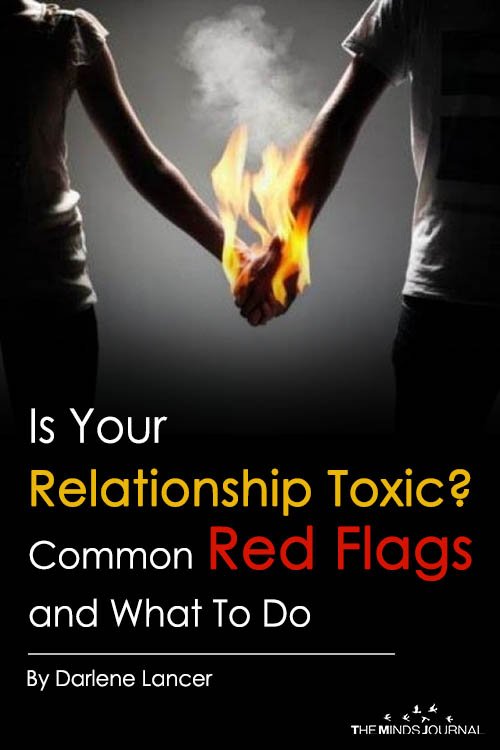 Recognizing this reality is actually empowering. Instead, focus on what is within your control, like managing your own reactions to toxicity. Stay focused on what you can change.
Recognizing this reality is actually empowering. Instead, focus on what is within your control, like managing your own reactions to toxicity. Stay focused on what you can change.
4. Have Realistic Expectations
Having unrealistic expectations is a common source of stress in relationships. If you consistently go into negative interactions expecting them to be positive, you may have to examine whether your expectations are unrealistic. It’s often more helpful to go in with no expectations, so you’re less likely to be disappointed.
5. Go Into Visits With a Plan of Action
You might try to anticipate possible challenges that could come up and ways to avoid them. For example, you might bring along a member of your support system or go in with a plan to enforce a boundary. Your plan might not always go as expected, but it can help to have a guide.
6. Rely on Your Support System
Your support system can be beneficial in helping you deal with the stress that comes from toxic parent relationships. Don’t hesitate to reach out to loved ones if you need to vent about how you’re feeling or brainstorm solutions.
Don’t hesitate to reach out to loved ones if you need to vent about how you’re feeling or brainstorm solutions.
7. Get Additional Support if Needed
If you feel like you don’t have enough positive support, consider joining a support group for the children of toxic parents. You could also join an alternatively relevant group like one for people dealing with anxiety, depression, or the children of alcoholics. You might also benefit from joining an activity to meet new people like a sports team or book club.
8. Practice Self-care
Having toxic parents can take an emotional toll on you. Maintaining good self-care is essential for dealing with any stress in your life. Make an effort to do at least one positive and healthy activity for yourself each week to alleviate stress. You might also try something new like meditation, art, or exercise.
When to Seek Professional Help
If managing a relationship with a toxic parent is causing you considerable stress, you may benefit from getting professional help.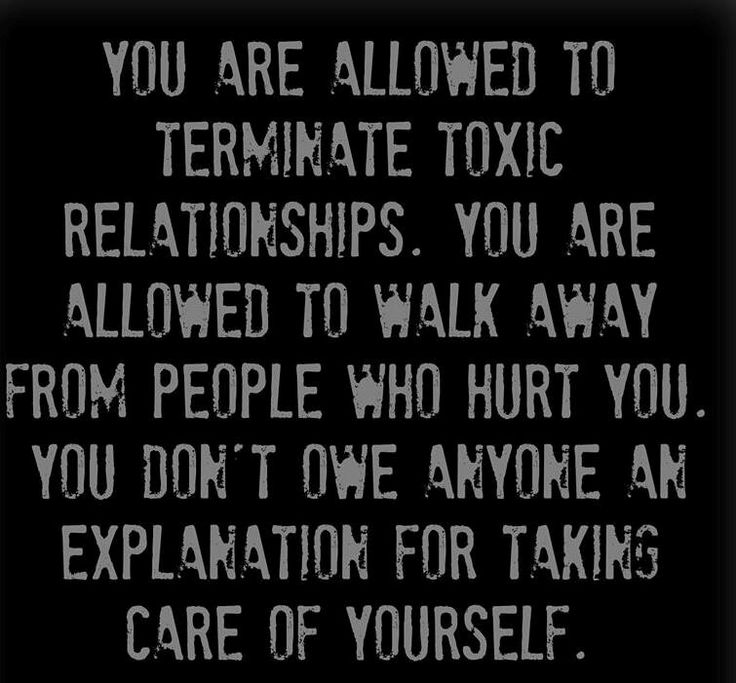 Signs that you are under too much stress include feeling sad, anxious, or irritable often, loss of interest in things that were once pleasurable, changes in your sleeping and eating patterns, difficulty concentrating or making decisions, and isolating from others.
Signs that you are under too much stress include feeling sad, anxious, or irritable often, loss of interest in things that were once pleasurable, changes in your sleeping and eating patterns, difficulty concentrating or making decisions, and isolating from others.
Therapy can help you heal from the effects of a toxic parent. It can provide an opportunity to explore your past and better understand how it affects you today, as well as teach you ways to set healthy boundaries, communicate effectively, and cope with your own feelings.
A therapist that specializes in working with family issues may be able to help. You can find a therapist by searching an online directory, which allows you to narrow down your search to help you find the right fit.
Final Thoughts on Toxic Parents
Managing a relationship with a toxic parent can be challenging, but there are ways to move forward. Developing your own boundaries and coping skills in therapy can be helpful. Don’t hesitate to get the support that you need.
Don’t hesitate to get the support that you need.
Additional Resources
Education is just the first step on our path to improved mental health and emotional wellness. To help our readers take the next step in their journey, Choosing Therapy has partnered with leaders in mental health and wellness. Choosing Therapy may be compensated for referrals by the companies mentioned below.
BetterHelp (Online Therapy & Parent Coaching) – BetterHelp has over 20,000 licensed therapists who provide convenient and affordable online therapy and parent coaching. BetterHelp starts at $60 per week. Complete a brief questionnaire and get matched with the right therapist for you. Get Started
Headspace (Mindful Parenting) – Mindfulness and meditation can change your life. In a few minutes a day with Headspace, you can start developing mindfulness and meditation skills. Free Trial
Choosing Therapy’s Directory (Family Counseling) – Find an experienced therapist trained in family counseling.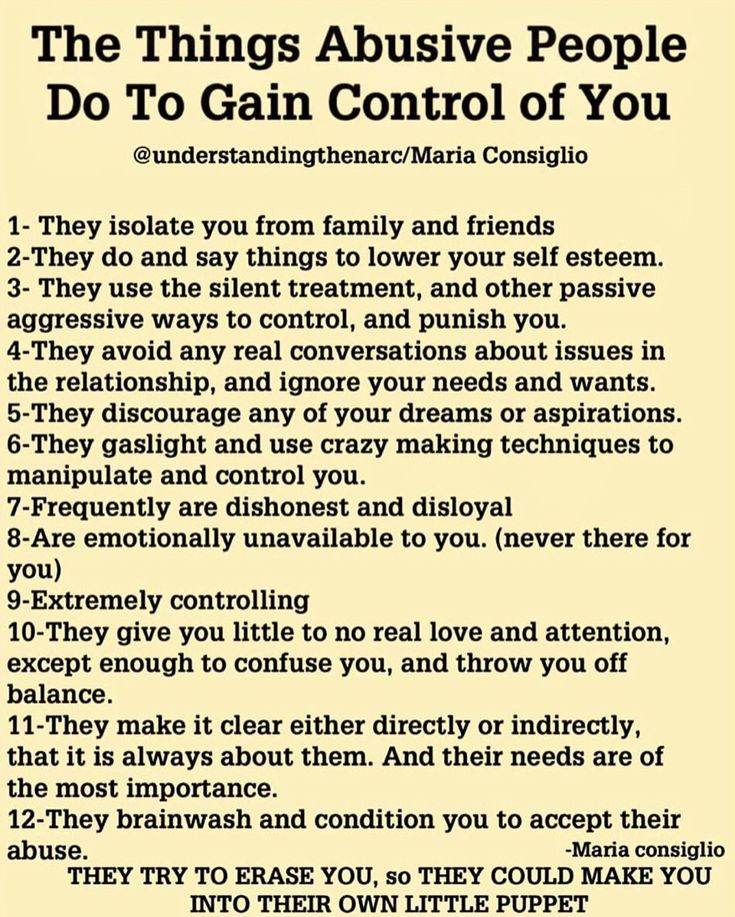 You can search for a therapist by specialty, availability, insurance, and affordability. Therapist profiles and introductory videos provide insight into the therapist’s personality so you find the right fit. Find a therapist today.
You can search for a therapist by specialty, availability, insurance, and affordability. Therapist profiles and introductory videos provide insight into the therapist’s personality so you find the right fit. Find a therapist today.
Choosing Therapy partners with leading mental health companies and is compensated for referrals by BetterHelp and Headspace.
For Further Reading
For more information on toxic parents, see the following organizations:
- National Council on Family Relations
- Adult Children of Alcoholics/Dysfunctional Families
- Parents Anonymous
5 sources
Choosing Therapy strives to provide our readers with mental health content that is accurate and actionable. We have high standards for what can be cited within our articles. Acceptable sources include government agencies, universities and colleges, scholarly journals, industry and professional associations, and other high-integrity sources of mental health journalism.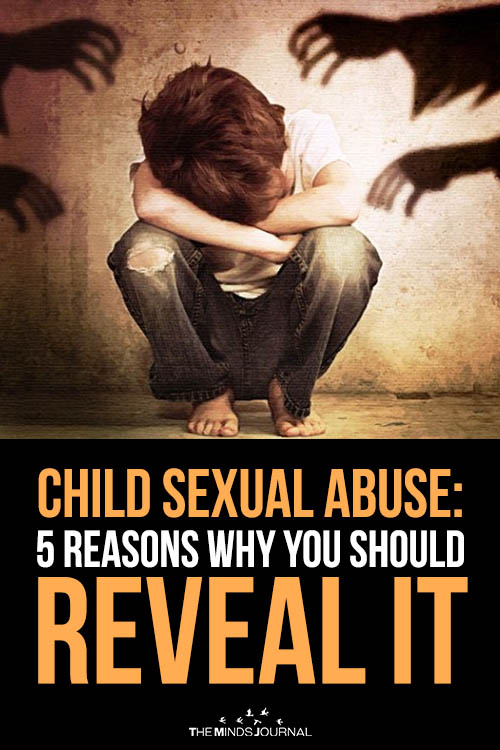 Learn more by reviewing our full editorial policy.
Learn more by reviewing our full editorial policy.
-
Branco, M. S. S., & Linhares, M. B. M. (2018). The toxic stress and its impact on development in the Shonkoff’s Ecobiodevelopmental Theorical approach. Estudos de Psicologia (Campinas), 35, 89-98.
-
Herrenkohl, T. I., Hong, S., Klika, J. B., Herrenkohl, R. C., & Russo, M. J. (2013). Developmental impacts of child abuse and neglect related to adult mental health, substance use, and physical health. Journal of Family Violence, 28(2), 191-199.
-
Seay, A., Freysteinson, W. M., & McFarlane, J. (2014, July). Positive parenting. Nursing Forum, 49(3), 200-208.
-
Heim, C., Shugart, M., Craighead, W. E., & Nemeroff, C. B. (2010). Neurobiological and psychiatric consequences of child abuse and neglect. Developmental Psychobiology, 52(7), 671-690.
-
Berber Çelik, Ç., & Odacı, H. (2020). Does child abuse have an impact on self-esteem, depression, anxiety and stress conditions of individuals?.
 International Journal of Social Psychiatry, 66(2), 171-178.
International Journal of Social Psychiatry, 66(2), 171-178.
If you are in need of immediate medical help:
Medical
Emergency
911
Suicide Hotline
800-273-8255
Why unhealthy parent-child relationships arise
05.11.2020
© depositphotos.com
Self-doubt, low self-esteem, inability to self-determination - all this can be laid in a child at an early age by adults themselves. In modern society, the term "toxic parents" has become popular. It was introduced into use by the American psychotherapist Susan Forward, who wrote a whole book about it. How parents can influence the personality of the child, employees ANO "CISM" Anna Shmakova , head of the online psychological counseling service of the social rehabilitation center for minors "Mayak" , told.
- Who are toxic parents?
– Today, unhealthy, unconstructive parent-child relationships are called toxic.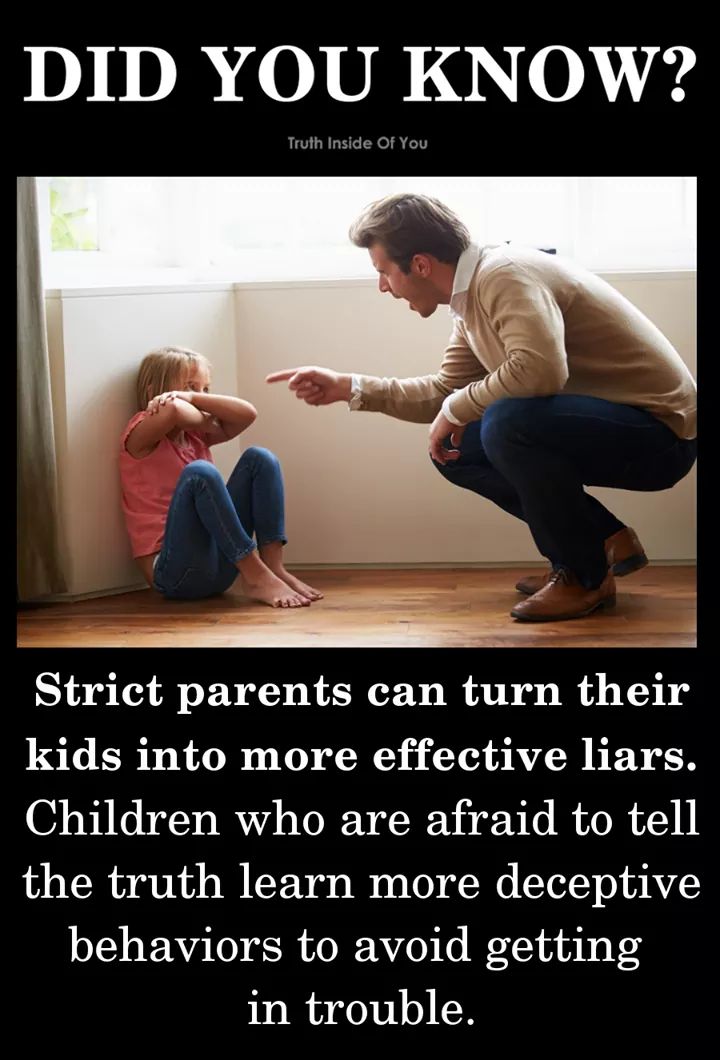 This concept includes a disrespectful attitude towards a child, hypercontrol, a rigid family hierarchy, ignoring, preference for one child over another, constant criticism, manipulation. Also in this category are child abuse, various parental addictions. These are all manifestations of parental toxicity. However, it is important not to confuse these factors with situational toxicity. If, for example, a parent is in a stressful situation or is experiencing an age crisis, is irritated, and has behaved with a child in a way that is not typical for him, this does not mean that he has become toxic. Toxicity is a systematic behavior, a style of communication with a child, a parenting style. Such parents do not notice that they are doing wrong in relation to the child.
This concept includes a disrespectful attitude towards a child, hypercontrol, a rigid family hierarchy, ignoring, preference for one child over another, constant criticism, manipulation. Also in this category are child abuse, various parental addictions. These are all manifestations of parental toxicity. However, it is important not to confuse these factors with situational toxicity. If, for example, a parent is in a stressful situation or is experiencing an age crisis, is irritated, and has behaved with a child in a way that is not typical for him, this does not mean that he has become toxic. Toxicity is a systematic behavior, a style of communication with a child, a parenting style. Such parents do not notice that they are doing wrong in relation to the child.
- What are the reasons for such patterns of parental behavior? What are the main reasons?
- The reasons for this behavior lie primarily in intrapersonal problems and conflicts.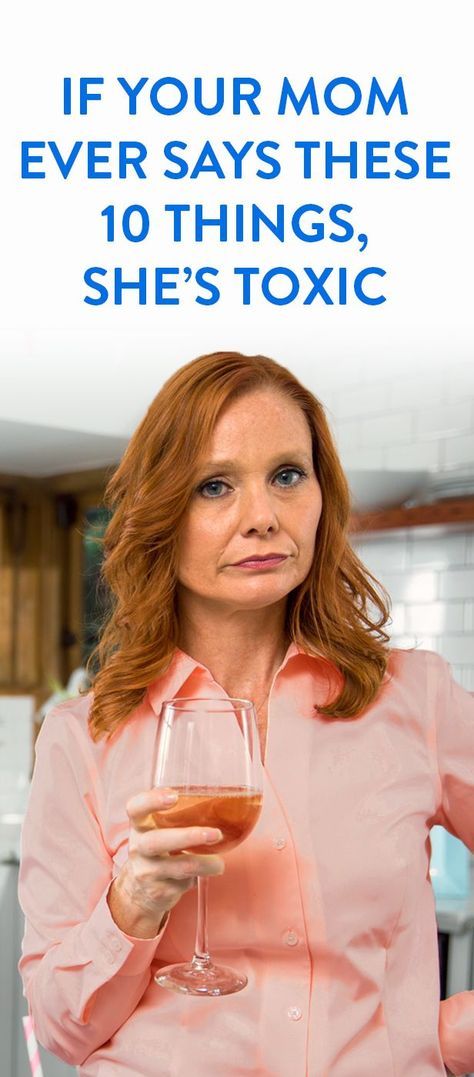 Most likely, this comes from the childhood of the parent himself. Perhaps in his family there also existed such a model of relationships, which he now reproduces in relations with his child. Each situation is very individual, and here it is worth analyzing each specific case separately.
Most likely, this comes from the childhood of the parent himself. Perhaps in his family there also existed such a model of relationships, which he now reproduces in relations with his child. Each situation is very individual, and here it is worth analyzing each specific case separately.
– How can such a model of child-parent relationship affect the adult life of a child?
- Such behavior from childhood forms in the child problems with self-esteem, a constant feeling of guilt, self-doubt. The child becomes socially unsuccessful, and, most likely, this problem will not disappear in adulthood. The parent fails to build a healthy relationship with the child and thus fails to show the child an example of constructive interaction. Because of what, later the child will not be able to build relationships with other people. As a result, in adulthood, this risks developing into hyper-responsibility or, conversely, into a complete avoidance of responsibility.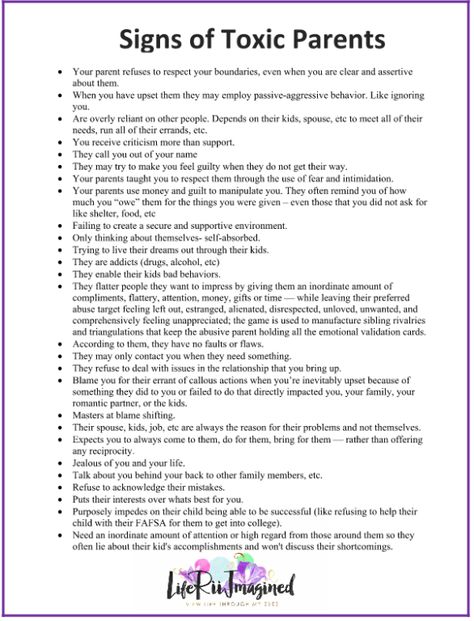 This can form emotional coldness, an inability to show empathy and be sincere.
This can form emotional coldness, an inability to show empathy and be sincere.
- Can toxic parents provoke a desire in a child to lead a destructive lifestyle?
– Toxicity of parents, of course, gives rise to deviant behavior of the child. In most cases, children who lead a destructive lifestyle have disrupted parent-child relationships in the family. Any phrases, attitudes that a parent inspires a child can provoke addictive and self-destructive behavior. For example, constant criticism of the appearance of a child can form an eating disorder in him or a tendency to self-harm (self-harm). Constant control and distrust can cause a desire to commit some kind of offense or run away from home. Unauthorized leaving home can also be triggered by the constant dissatisfaction of the parent with what the child does at home, in school. A teenager is always in fear of doing something wrong. If he gets a low grade in school, it is easier for him to run away than to go home and tell his parents about it.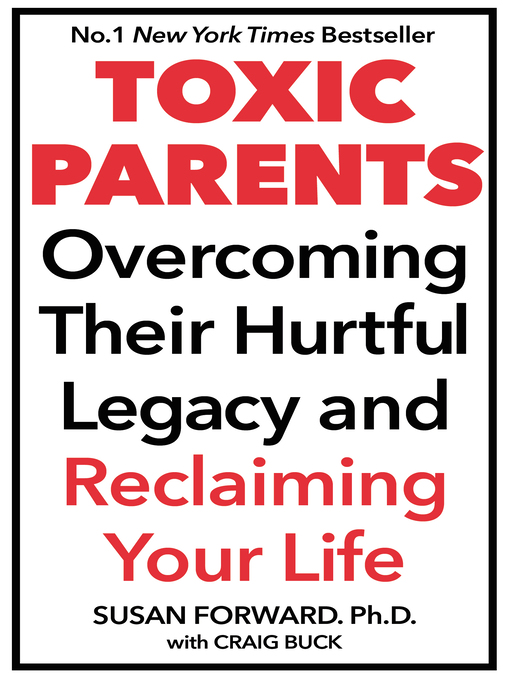
- Is it possible to correct the behavior of parents? Who can help the family?
In this case, a psychologist can help the family. However, this is only possible when the parents themselves understand that they are doing something wrong, that they need help and are ready to work on themselves. In this case, there will be a result, and parents will have a chance to improve and change relationships in the family. The most important thing is to find the cause, because toxicity can manifest itself in other areas of the parent's life, perhaps not as clearly as in the relationship with the child. Therefore, it requires intrapersonal analysis, work with self-control and emotional intelligence.
– How can children themselves cope with psychological pressure from adults?
- A lot depends on age. If the child is an adult, he is already relatively independent, independent and can somehow build personal boundaries, then there is a high chance of limiting the influence of parents, protecting his space from pressure.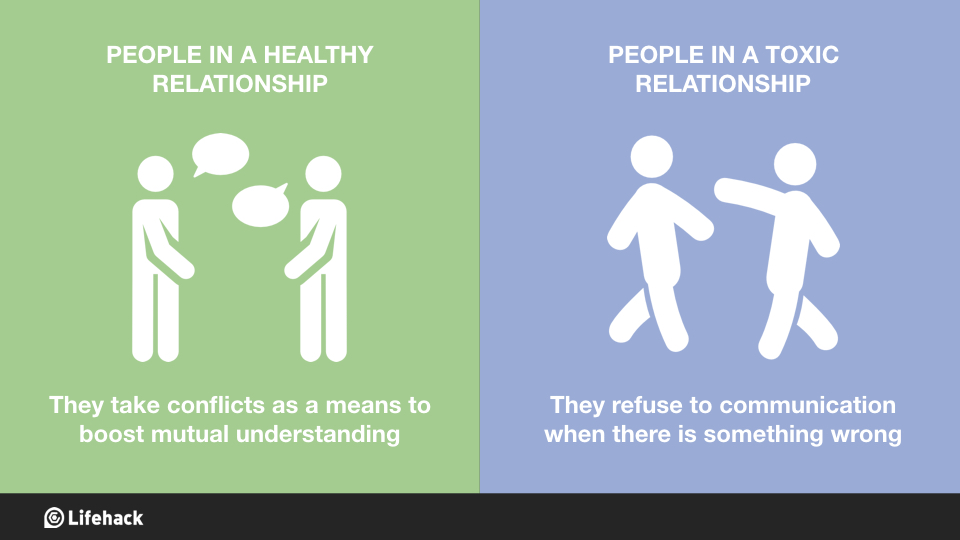 However, if the child is still small, dependent on mom and dad, it is very difficult for him to defend himself. The younger the age, the more defenseless the child.
However, if the child is still small, dependent on mom and dad, it is very difficult for him to defend himself. The younger the age, the more defenseless the child.
Tags:
child safetyteenagers
how to build relationships with toxic parents?
You probably know that many adult problems are rooted in childhood, and parents often provided the ground for the development of these problems. Almost any line of behavior of a parent one way or another leads an adult child to a psychologist's office. There are parent-child relationships that you can overcome on your own and continue healthy communication, and it happens that parents are not ready to meet the child halfway and do not recognize the consequences of their actions. We understand who toxic parents are and what to do with them.
Who are toxic parents?
In general, "toxicity" is a rather broad and not the most scientific term. Now, thanks to its popularity, it makes the subject of conversation intuitive, gives the necessary emotional coloring. But in fact, under the phrase "toxic parent" there are a lot of practices and behaviors.
But in fact, under the phrase "toxic parent" there are a lot of practices and behaviors.
They Won't Change author Nina Brown uses the term "toxic parents" for emotionally withdrawn and self-absorbed relatives who shape their children's behavior to suit their own sense of comfort and act solely out of self-interest. There can be many manifestations of such behavior:
Conditional love
A parent's love is available to a child only when he or she does something "worthy": gets excellent grades, wins a prize in a competition, receives a master of sports. Such parents do not know how to love a child simply because he exists, if a person does not experience love, it means that the child is not trying hard enough to awaken this love.
Criticism and attempts to make their child "perfect"
Each parent has his own understanding of what an ideal child should be. For some, this is a healthy and diversified, happy child, while in the eyes of others (emotionally distant parents), the child has a certain function and must correspond to some ideals. He must do well in school, look good, not be obese, speak three languages by the age of ten, but most importantly, his parents should not be ashamed to tell their friends or colleagues about him. In the eyes of emotionally detached parents, the child becomes a status marker, a visible result of their investment. Therefore, each torn knee on jeans becomes a reason for a real scandal with shouts of “Do you have any idea how much it costs?”, And each rating below is perfectly accompanied by reproaches: “Why do I pay tutors money?”
He must do well in school, look good, not be obese, speak three languages by the age of ten, but most importantly, his parents should not be ashamed to tell their friends or colleagues about him. In the eyes of emotionally detached parents, the child becomes a status marker, a visible result of their investment. Therefore, each torn knee on jeans becomes a reason for a real scandal with shouts of “Do you have any idea how much it costs?”, And each rating below is perfectly accompanied by reproaches: “Why do I pay tutors money?”
Violation of personal boundaries
This can be anything from checking personal belongings in the absence of a child to interfering with a child's communication with peers. Moreover, violation of personal boundaries often occurs even at the level of decision-making: “No, you won’t go to art school, your hands are crooked”, “Don’t communicate with this classmate, his parents allowed him to dye his hair blue”, “Everyone in our family doctors, so you will also enter the medical school, we have already agreed with the dean’s office. ” The opinion of the child is not asked, and if he tries to take the initiative, it is severely suppressed, and for the rest of his life, an adult child will be reminded of how he disobeyed.
” The opinion of the child is not asked, and if he tries to take the initiative, it is severely suppressed, and for the rest of his life, an adult child will be reminded of how he disobeyed.
Often the behavior of emotionally withdrawn and self-absorbed parents is not limited to childhood and adolescence. Even when children cross the line of majority, build a career or have children of their own, parents also continue to interfere in their lives, shake their heads and sigh that you did not enter the budget department, did not find a more promising partner, did not give birth to children early, did not refuse experiments with appearance - in general, they did what your relatives dissuaded you from.
Such toxic parents also tend to shift responsibility for their mood onto their children, manipulate, including feelings of guilt, and suppress the child's personality, for example, by refusing dialogue. An emotionally detached parent takes the position not of a mentor or leader in relations with the child, but of a leader who can assign tasks and punishments to the child if the child does not cope with the tasks for one reason or another.
It is important to understand that toxic parents are distinguished from not very skillful people who made a mistake, but did it involuntarily, by fixation on their own person and personal goals. It happens that an ordinary parent refuses a child to attend an expensive music or art school, because in this way he wants to increase academic performance and the child's chances of entering an institute. A toxic parent, on the other hand, will first of all think not about the prospects for the child, but about the consequences for himself: a good specialty - so that there is someone to support in old age, ballet or professional sports - so that the child achieves what the parent failed at his age, participation in contests - to have something to brag about on the playground.
Consequences of living with emotionally withdrawn parents
According to Nina Brown and other psychologists, children of emotionally withdrawn parents choose two main strategies for existence in the family circle: they either adapt or rebel.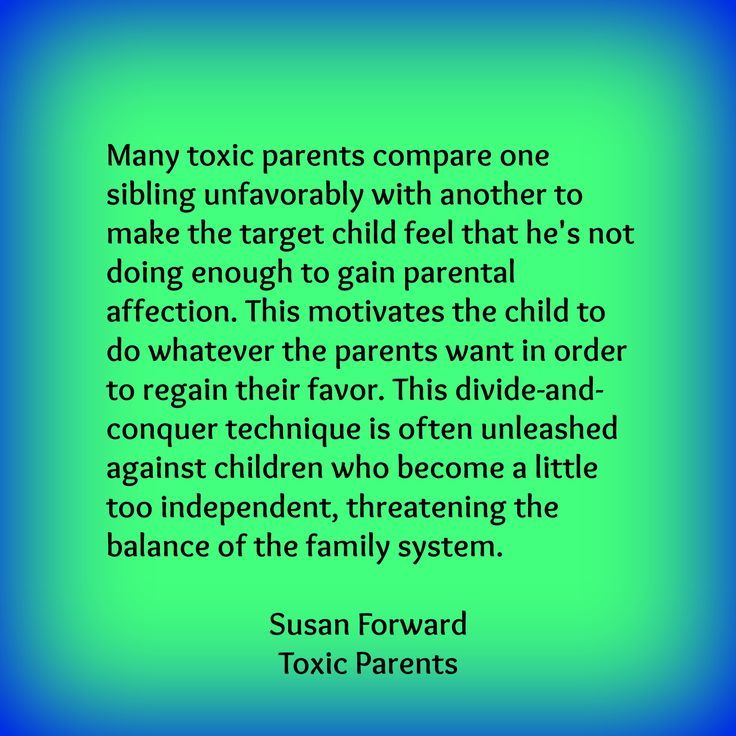 In the first case, the child will do his best to be good in the eyes of his parents, win prizes, not swear, not fight, study perfectly. In the second option, the child will begin to show deviant behavior and act contrary to the expectations of the parents.
In the first case, the child will do his best to be good in the eyes of his parents, win prizes, not swear, not fight, study perfectly. In the second option, the child will begin to show deviant behavior and act contrary to the expectations of the parents.
In the future, already in relationships outside the family, a person can form co-dependent or counter-dependent relationships, respectively. In the first case, a person will be sure that how much they love him depends only on him and his efforts, and in the second, that partners and, in general, those around him should love him despite all the shortcomings that he will actively demonstrate.
Due to the nature and type of attachment to parents, the chosen strategy can combine both options. For example, a child in communication with parents will show himself as obedient and complaisant as possible, but outside their focus of attention, he will behave like a rebel. Or vice versa: in communication with parents, the child will be a rebel, and for everyone else - an exemplary excellent student, a creative, calm person.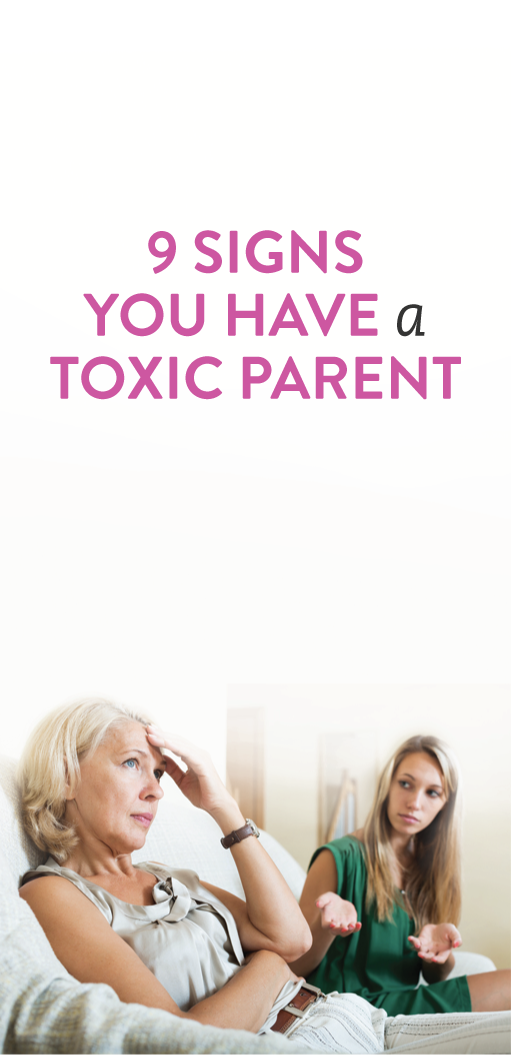
While the child decides how to live this life and build relationships with others, the parents either continue to interfere with their invaluable vision and no less valuable opinion, or wash their hands, believing that their child is simply ungrateful, and the project to turn him into "worthy man" failed. Sometimes emotionally detached parents may come on the second circle with younger relatives (if any) or grandchildren.
How to live on?
Some young people, having reached the age of majority and having worked through their traumas in a psychologist's office, try to rebuild relationships with their parents in which they will be perceived as an independent person. They try to bring a parent or parents into communication on an equal footing, but as a result, they often face the fact that parents either take minimal steps to communicate on an equal footing, or do not understand at all why they need it. Many adult children, despite everything, continue to try to regain communication, even if it continues to traumatize them, following social attitudes and stereotypes like “relationships with parents should be good.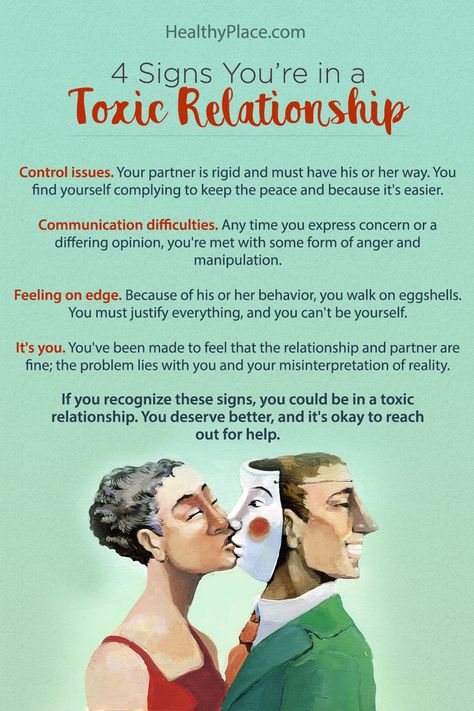 ” But sometimes maintaining these “good” relationships is about giving up your desires and values. Here's what you can (and should) do, according to Nina Brown, if you still can't build equal communication.
” But sometimes maintaining these “good” relationships is about giving up your desires and values. Here's what you can (and should) do, according to Nina Brown, if you still can't build equal communication.
Accept that they won't change
Parents are mature individuals, just like you. They already have a system of values, expectations and beliefs. They see no reason to change even for you, even for love. It can be difficult to admit it, but sooner or later it will have to be done.
Forgiving parents is not necessary
Some actions of parents in the process of education cannot be simply understood and forgiven, and you are not obliged to do so. You can try to discuss with your parents why they acted with you in one way or another, explain what didn’t suit you and how you felt, but if you understand that all your arguments are breaking against the wall (“It’s our own fault, we did everything right We were brought up like that too, and it's okay - you grew up normal, you make everything up"), then you are not obliged to continue this conversation and try to come to reconciliation.
Reduce communication
Sometimes this is the only way out. You do not have to completely burn bridges, change phone numbers and name so that relatives can never find you. You can cut communication down to holidays, congratulations on the phone, or find topics that do not lead to conflict: common interests, neutral conversations. This can be a working strategy if you still have something in common with your parent, such as your own children who want to keep in touch with grandparents. But communication in this case should be established primarily between you and the child, so that you can determine in time if a relative is already having a toxic effect on your child.
Remember that even in your relationship with your parents, you should choose yourself and your well-being first. Try not to let resentment and pain take over and, if possible, resist the urge to take revenge or do something solely to spite the emotionally distant parent. So you can sacrifice your whole life to their behavior, but not find a way to be happy yourself.
